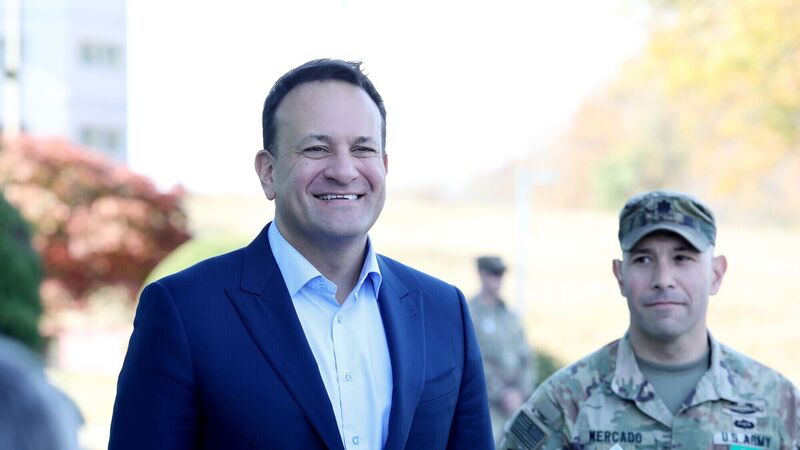RTÉ scandals make reform of TV licence fee harder – Taoiseach

Speaking during his trip to South Korea, Taoiseach Leo Varadkar said the RTÉ controversy would make it harder to switch from the TV licence fee to a household media charge. Picture: Shin hyun Kyung/PA
Taoiseach Leo Varadkar has said the RTÉ payments scandal has made it harder for the Government to consider introducing a household broadcast charge to replace the TV licence fee.
Mr Varadkar’s comments come as RTÉ Director General Kevin Bakhurst is due to deliver an outline of the station’s strategic reform plan, expected next week.












